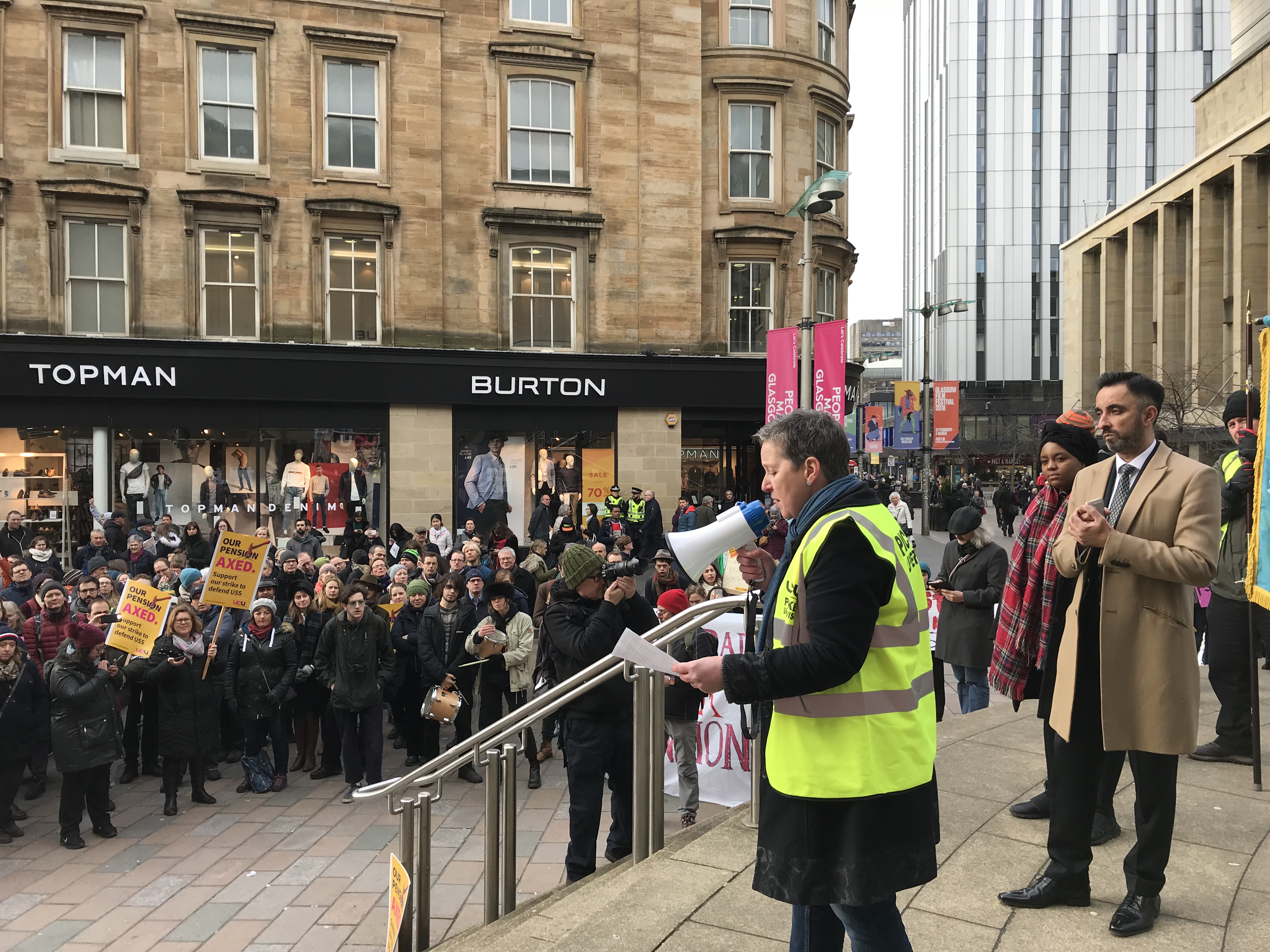
It scarcely needs to be said, but we are facing an unprecedented crisis within Higher Education. Our workloads are increasing daily, our pay and the terms and conditions of our employment are gradually being chipped away, and the old promise of jam tomorrow – in the form of a generous pension – is fading with every passing day. We are due to meet this week for a Special Higher Education Sector Conference, where UCU will make monumental decisions regarding the way in which we stand up to these threats. At that SHESC there are three specific motions being debated that we believe are vital to setting us on the right course.
Our members have shouldered an enormous burden these past few years; out on strike for 22 days during the 2019/20 academic year, followed immediately by the onslaught of the pandemic. It is not defeatist to admit that we are exhausted, pushed to breaking point by a system that cares little for us, or our futures. The fact that we are tired doesn’t mean that we will give up without a fight, and we all burn with a collective outrage at the injustices that pervade academia. But we must be realistic about the size of the challenge that we face, and the damage that will be done if we adopt the wrong approach when we resist. We cannot go on strike simply for the sake of striking. The motions described below – and which we urge you to support – have been proposed not because we wish to avoid taking industrial action, but instead to maximise the impact of any strike. We cannot ask our members to come out again, as they did in 2019/20, to sacrifice over a months’ wages without achieving a single concession from the employers.
To try to ensure that the next wave of industrial action leads to meaningful change, we ask that delegates from every eligible UCU branch attending SHESC support the following motions.
Motion 11 calls for UCU to keep the two disputes separate, to maximise the chances of a victory in each. Please support Motion 11
While the battle over USS and the Four Fights – over pay, equality, casualisation and workload – are of equal importance, they are nonetheless two different disputes. By tying them together into a single industrial action, we simply make a win more difficult.
Imagine, for a moment, that we follow the same course as 2019/20, and bind USS and the Four Fights into a single dispute. Co-ordinated action may impact a greater number of employers, but reaching a joint resolution on both issues presents an almost impossible challenge to our negotiators. Improvements to pay and conditions will need to be agreed at Joint Negotiation Committee for Higher Education Staff (JNCHES), and will involve employers from across the sector, as well as representatives from the five trades unions representing HE staff. The future of USS, on the other hand, involves only the pre-92 Universities, will be decided at an entirely different negotiation forum, made up of entirely different partners – including the USS Trustee, working within a regulatory framework set by the UK government.
By linking the two disputes together, we make a win in each much more difficult. Imagine a situation where our JNCHES negotiators force important concessions from the employers on pay and conditions, but at the same time negotiations over our pensions break down. If both disputes are tied together, then we will all have to stay out on strike until both negotiations bear fruit. A pay offer for the entire sector could end up being rejected, simply because of the intransigence of the USS Trustee. Is it truly an act of solidarity for the interests of the entire sector to be sacrificed, simply to protect the pensions of the pre-92 universities? Likewise, should the complex negotiations over USS be further complicated by the need to find a simultaneous resolution to the workload and casualisation crisis?
All HE branches are entitled to vote on Motion 11.
Motion 1 calls for UCU to take time to organise for victory, rather than rush into a poorly planned strike on USS. Please Support Motion 1
Since the Spring of 2020, the vast majority of us have been working from home, often isolated from friends, colleagues, and students. For many, the last time that we met in person was on the picket lines of the last strike, which feels like an age ago. The financial impact of the pandemic has seen mass redundancies across the sector, meaning that our branch membership may seem very different to what it did back in March of last year.
If we are to effectively organise for action, then we need time to re-build our branches. Reaching the turnout threshold for an industrial action ballot is a challenge at the best of times, and to attempt to do so without sufficient time and resources will place us at a serious disadvantage. Should we rush to a ballot, and fail to make the threshold, then this will only embolden the employers. If we are to win this dispute, we must ensure that we are prepared, and passing Motion 1 will allow our elected representatives on the Higher Education Committee (HEC) the time to work with branches to properly prepare for victory.
Finally, Motion B4 helps UCU prepare for the next stage in the USS negotiations, exploring long-term options for the future of the scheme.Please support Motion B4
The employers representative, UUK, has indicated a willingness to explore Conditional Indexation (or Conditional Benefits) as a possible means of ensuring the long-term viability of USS. Some of our pensions negotiators think that this could be an option that would allow USS to continue as a collective, mutual, multi-employer scheme with an ability to invest for the long term in growth-seeking assets.
It is likely that the employers will propose this as an option in future negotiations, and it is therefore essential that UCU has a thoroughly researched view on the issue. Motion B4 does not commit the union to supporting Conditional Indexation, but it does enable the union to explore the feasibility of the policy, so that members are able to engage in a well-informed debate on the subject.
Industrial action, in defence of both our pensions and our pay and conditions, is now inevitable. Rarely have the stakes been higher, and the need greater to ensure that the withdrawal of our labour has the maximum impact.
Please ensure that your branch sends a full complement of delegates to SHESC and votes YES on Motions 1, B4 and 11.
Delegates will be asked to respect the long-established convention that only delegates from USS institutions vote on motions which relate to USS, including Motion 1 and Motion B4












